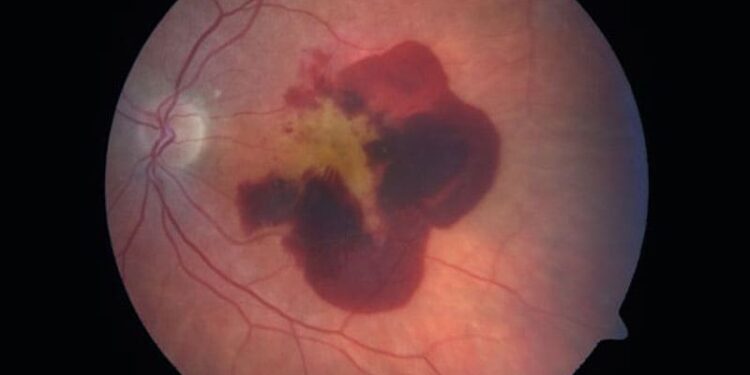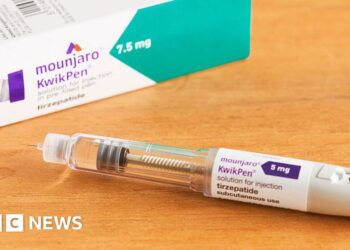TOPLINE:
Intravitreal injections of anti-VEGF were associated with a small but significant increase in the risk for stroke among patients with neovascular age-related macular degeneration. The risk was higher with aflibercept and bevacizumab than with ranibizumab and declined 60 days after the last injection.
METHODOLOGY:
- Researchers analyzed data from two Swedish national registries from 2007 to 2019 to investigate whether intravitreal anti-VEGF injections (ranibizumab, aflibercept, and bevacizumab) for age-related macular degeneration were associated with an increased risk for stroke.
- They identified patients with neovascular age-related macular degeneration who developed stroke or transient ischemic attack within 90 days of receiving an intravitreal anti-VEGF injection and matched them with individuals who experienced stroke but did not receive such treatment.
- The number of days between the last injection and the occurrence of stroke was categorized into three intervals: 0-30 days, 31-60 days, and 61-90 days.
TAKEAWAY:
- Among 33,585 patients with neovascular age-related macular degeneration receiving anti-VEGF injections, 936 (approximately 2.8%) experienced a stroke within 90 days of the last injection.
- Patients who received anti-VEGF injections were at a 27% higher risk for stroke within 90 days of the last injection than those who did not receive the treatment (risk ratio [RR], 1.27; 95% CI, 1.22-1.33).
- The risk for stroke was elevated in the first 0-30 days (RR, 1.38; 95% CI, 1.15-1.66) and 31-60 days (RR, 1.40; 95% CI, 1.09-1.79) after the last injection but declined thereafter.
- Aflibercept showed the highest risk (RR, 1.36; 95% CI, 1.23-1.52), followed by bevacizumab (RR, 1.26; 95% CI, 1.10-1.46), whereas ranibizumab demonstrated the lowest risk profile.
IN PRACTICE:
“For patients with nAMD [neovascular age-related macular degeneration] in need of anti-VEGF treatment who have a history of cerebrovascular events, have atrial fibrillation or hypertension, and who are smokers, it seems prudent to try to reduce stroke risk factors,” the researchers reported.
SOURCE:
Inger Westborg, of the Department of Clinical Sciences/Ophthalmology at Umeå University in Umeå, Sweden, was the corresponding author of this study, which was published online on June 7, 2025, in Acta Ophthalmologica.
LIMITATIONS:
The variations in the risk for stroke between anti-VEGF agents should be interpreted with caution, as the data could not determine whether differences were caused by confounding by indication or actual differences in risk. Information on smoking status was only available for the patients who experienced stroke.
DISCLOSURES:
This study received support through a grant from Region Stockholm, Sweden. One author disclosed serving as an advisory board member for various pharmaceutical companies.
This article was created using several editorial tools, including AI, as part of the process. Human editors reviewed this content before publication.
Source link : https://www.medscape.com/viewarticle/minor-increase-stroke-risk-after-anti-vegf-eye-injections-2025a1000fo3?src=rss
Author :
Publish date : 2025-06-11 11:52:00
Copyright for syndicated content belongs to the linked Source.







